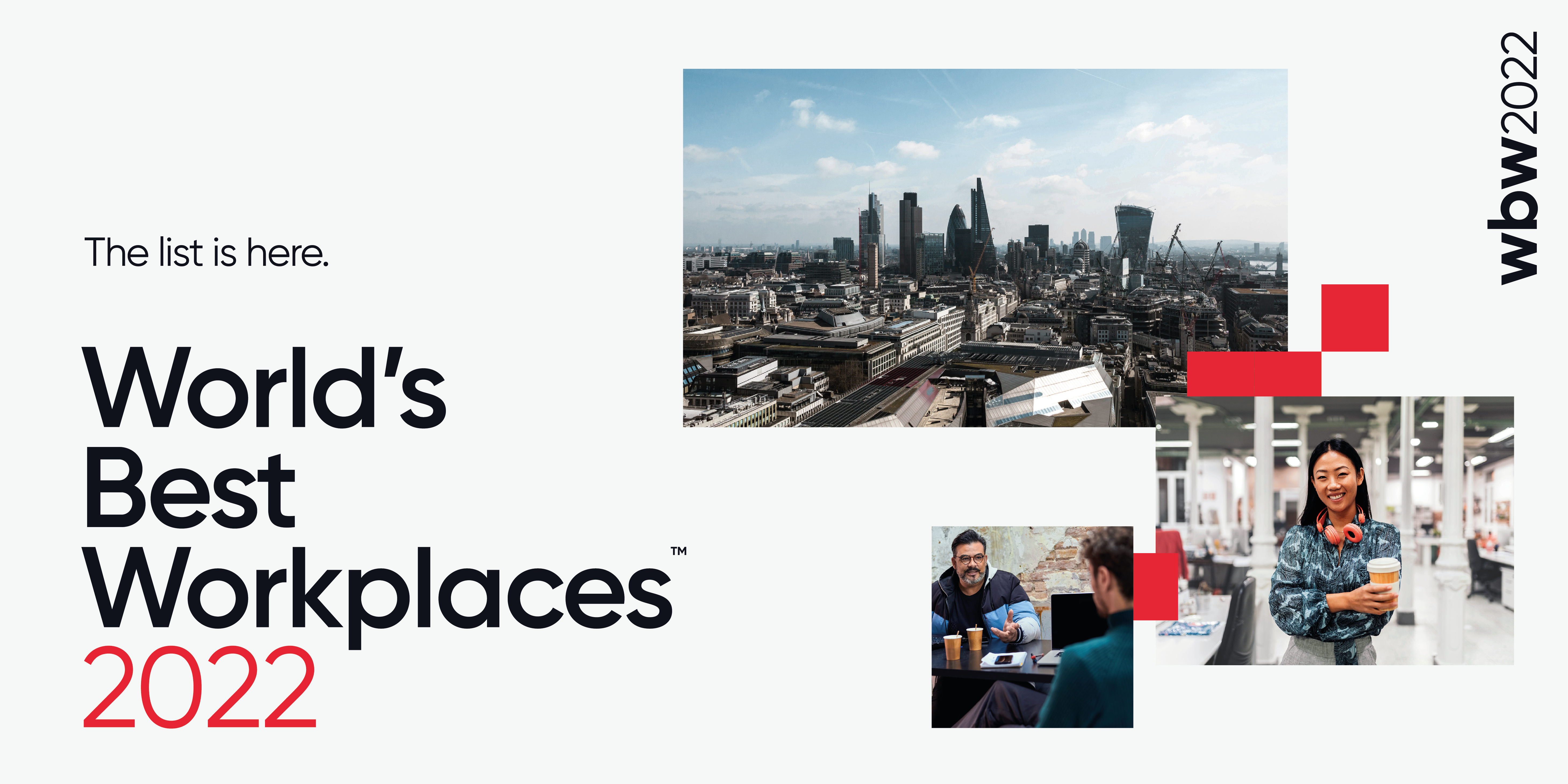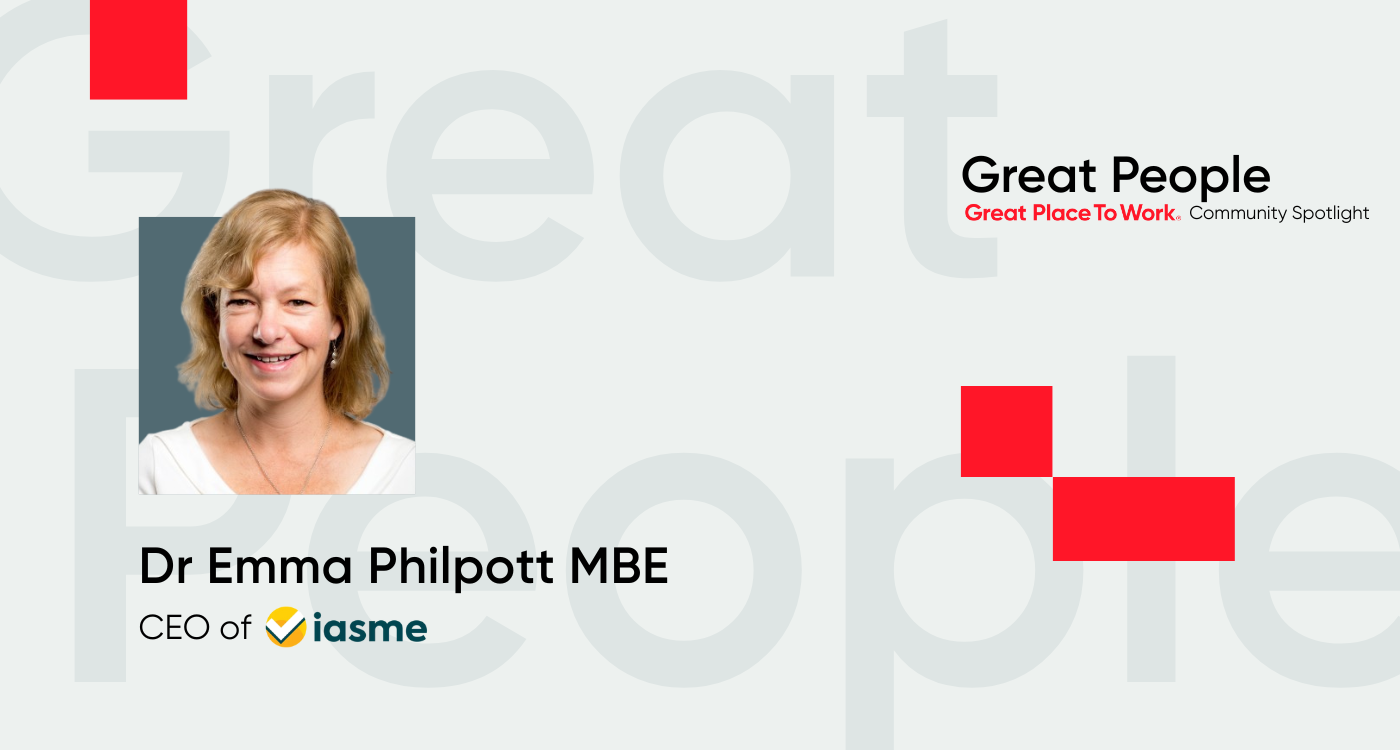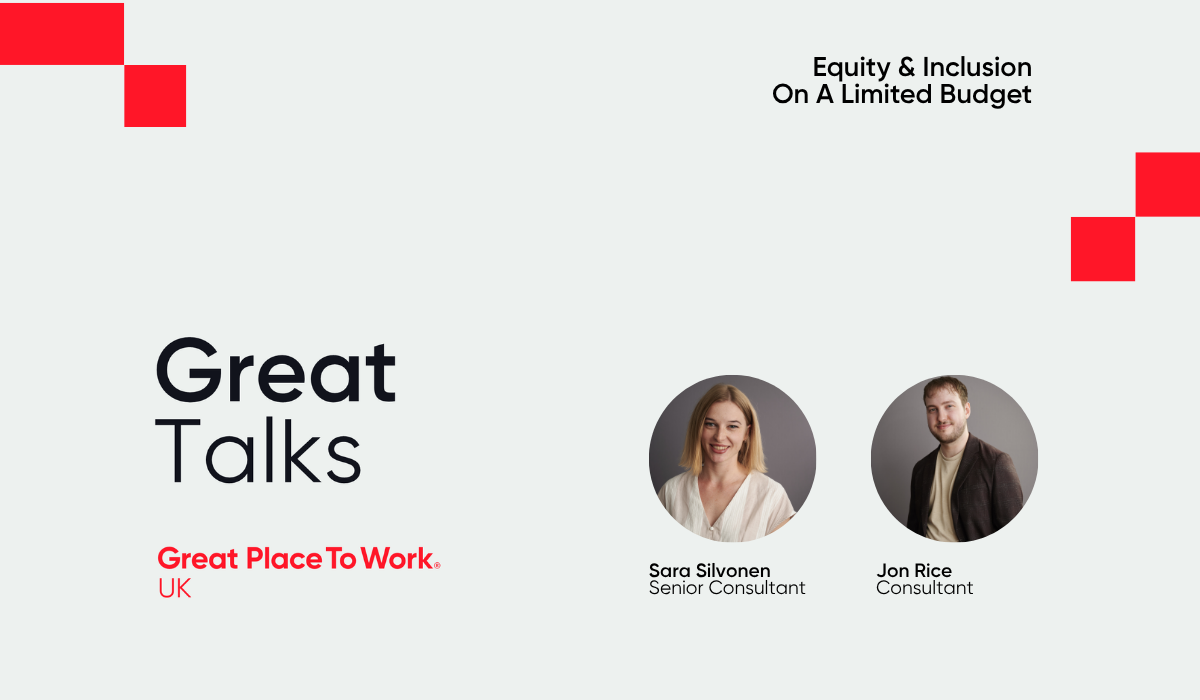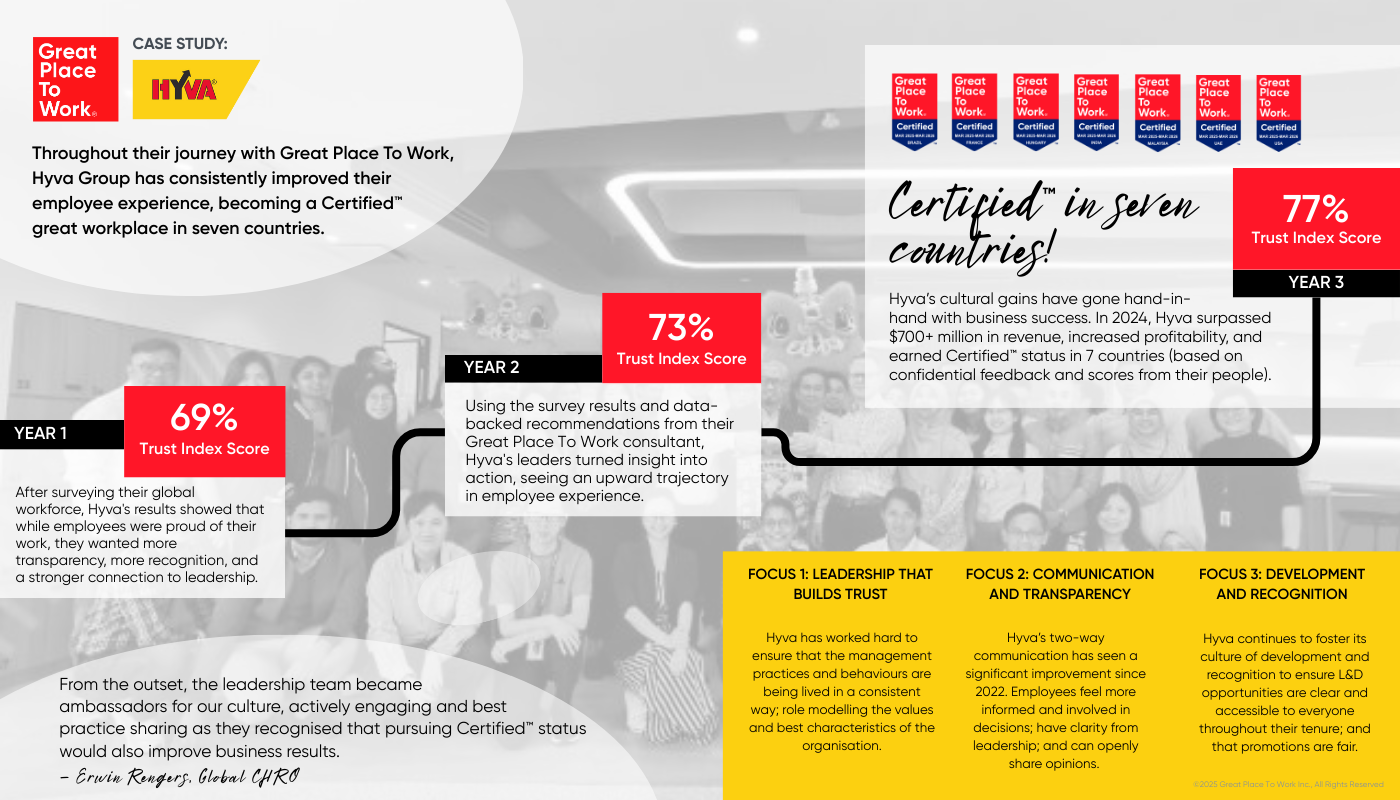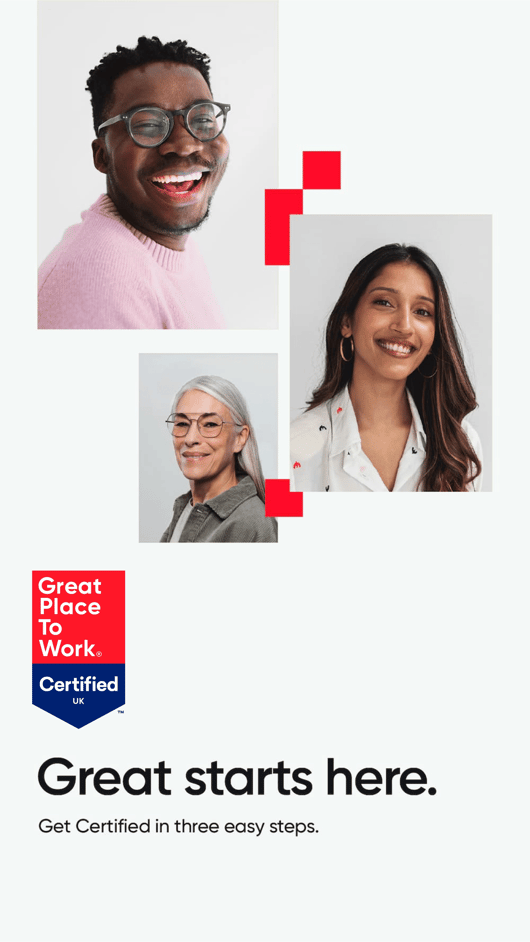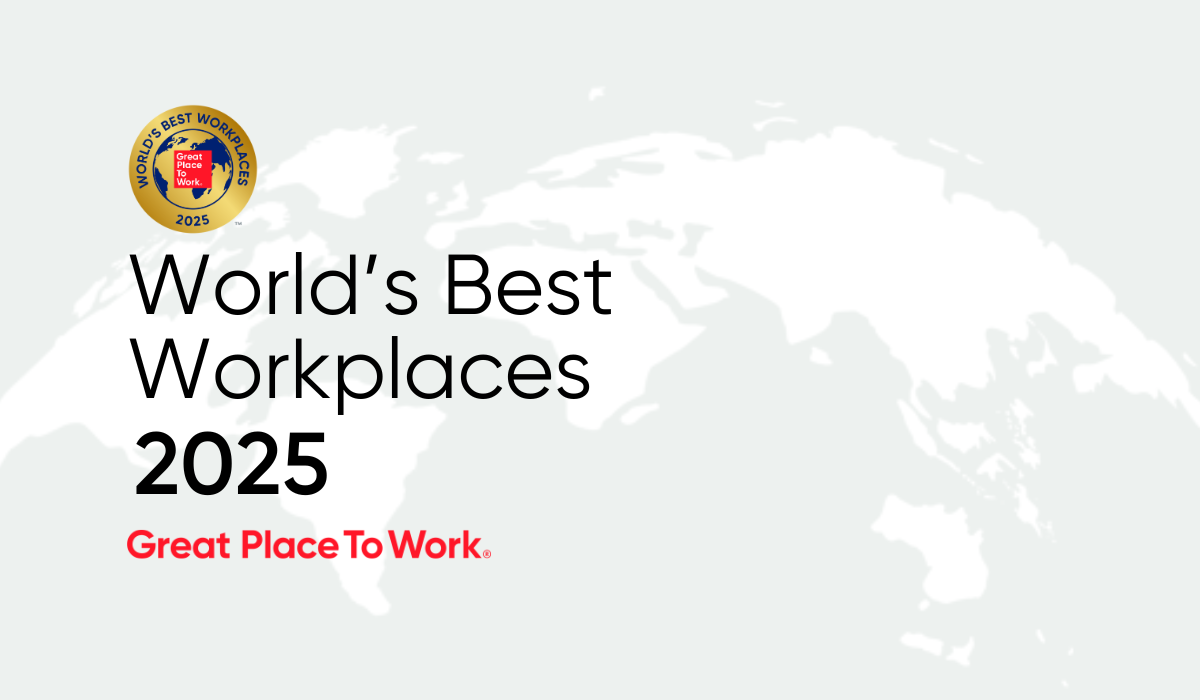After more than two years of pandemic and economic upheaval, people are reevaluating their lives. Workers around the world are reconsidering what they want from a job.
For the Fortune World’s Best Workplaces™ in 2022, the past year has been a time to recommit to employee well-being, adjust to flexible work, and relentlessly pursue equitable opportunity for every employee.
Great Place To Work® identified the 25 winning workplaces by surveying nearly 4.5 million employees worldwide, representing the workplace experience of nearly 15 million workers. To be eligible, companies must have made a national Best Workplaces list in five or more countries, and have more than 5,000 global employees.
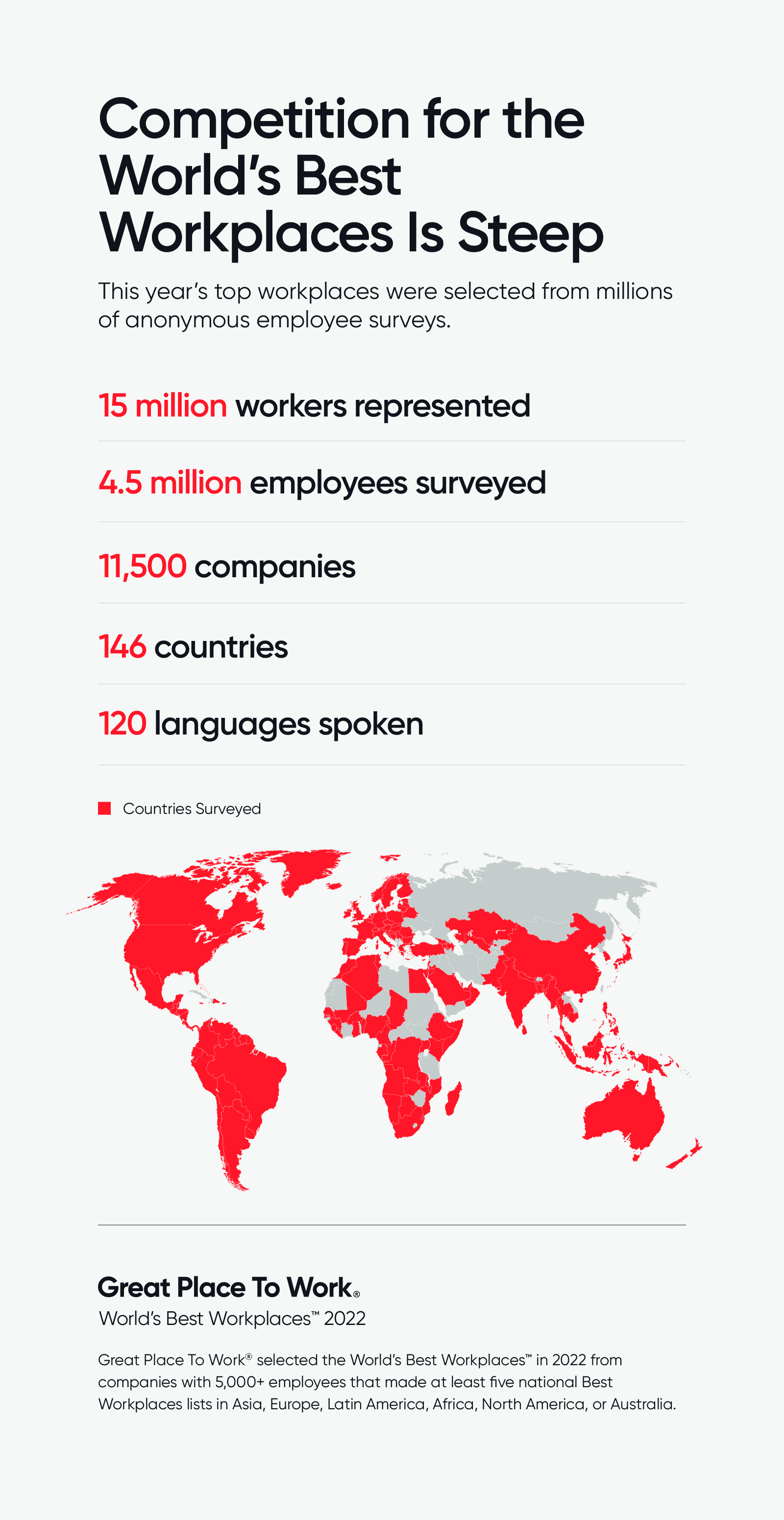
For companies on the list, the business benefits of investing in their people are clear.
On average, 87% of employees at the World’s Best Workplaces said they would recommend their workplace to friends and family. Additionally, 85% of employees on average want to work for their organisations long-term and 88% of employees say they “give extra” to support their organisation.
Wellbeing
These business benefits are the result of companies’ investment in employee wellbeing, a trending topic amid pandemic aftershocks. Employers have rolled out new benefits and programs to support employee resilience and mental health.
Even compared to other great workplaces around the world, 15% more employees at the World’s Best Workplaces report special and unique benefits.
At Cisco, No. 3 on the list, resilience training has helped employees feel supported to grow and take risks. The company’s mindfulness-based program, Mind Set, teaches participants cognitive strategies to boost mental stamina and unlock creative thinking.
In 2021, over 650 global employees completed a Mind Set course and 96% plan to use strategies learned in the program in the future. “When you take care of your mind, you can only become an amazing asset to the company,” said one participating employee.
Offering flexibility
During the pandemic, flexibility became paramount for employees. Workers who proved they could still be productive working from home have been reluctant to forego newfound freedoms.
Salesforce, No. 4 on the list, is mindful of human connection as it rethinks the use of company office space.
Individual desks still have their place, but the company increased space for socialising from 40% to 60%. Cafés, communal tables, focus pods, and more were created to boost connection and camaraderie.
For some of the World’s Best Workplaces, flexibility requires thinking outside the box.
Hilton, No. 2 on the list, developed many ways to provide flexibility to its workforce. “Hilton Flex” allows team members to choose how they are paid and when they work, and what department they work in.
As part of Hilton Flex, the hotelier uses Instawork to offer employees more flexibility in selecting shifts. With partner DailyPay, employees can access wages as they accrue, rather than waiting for the end of a pay cycle.
These flexible options are deeply meaningful to workers.
“Using DailyPay has been an amazing benefit to my family and me,” shared one U.S.-based Hilton employee. “Certain months, every bill just happens to line up on the same day. It’s nice to be able to use DailyPay to be certain that, not only are our bills for the month covered, but so are everyday necessities.”
For employees at the World’s Best Workplaces, flexibility is all about an ability to adapt. The average number of employees at winning companies who said their organisation quickly adapted to change was higher by seven points compared with other great workplaces.
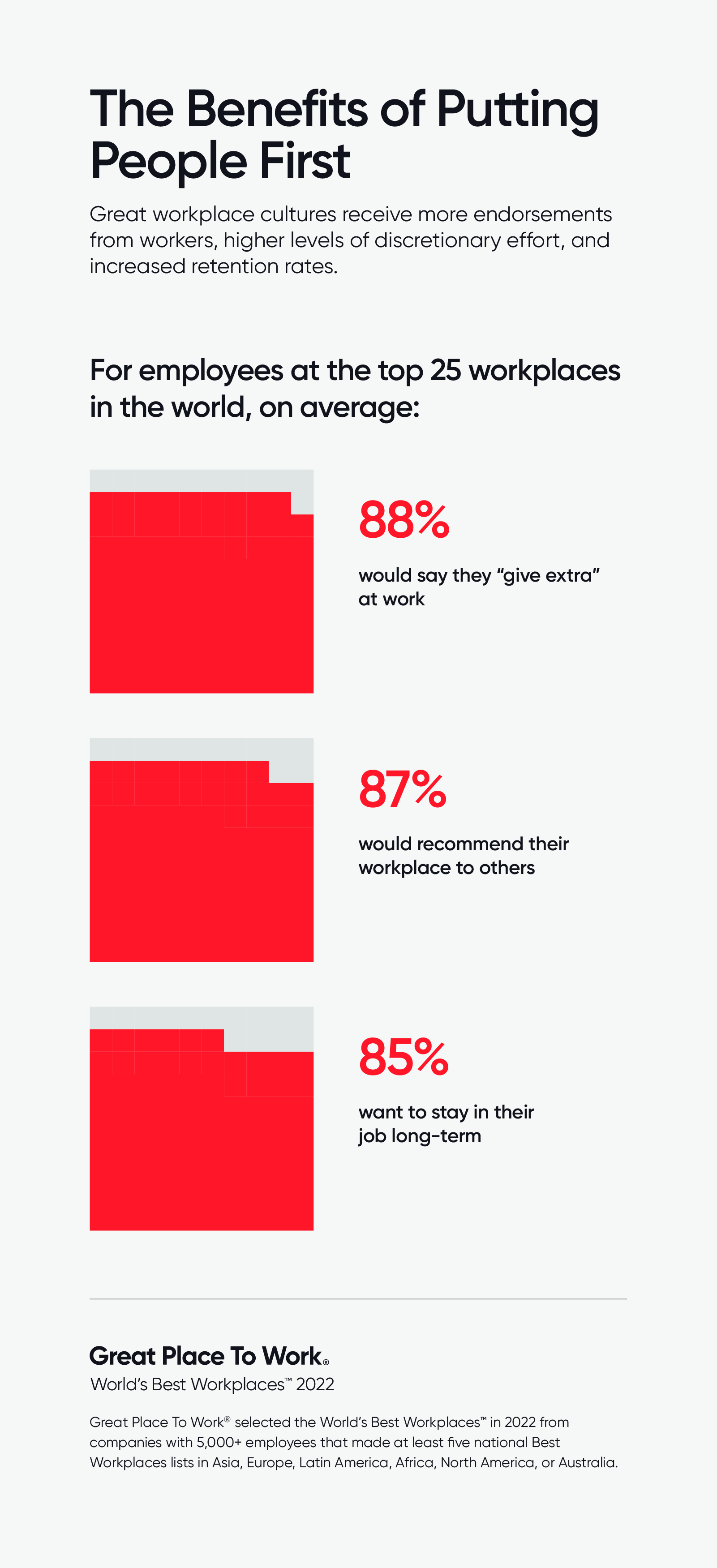
Equity in the workplace
Companies that close experience gaps for overlooked workers — from frontline employees to workers from underrepresented backgrounds — are more likely to survive economic downturns and outperform the stock market, per Great Place To Work research.
For the World’s Best Workplaces in 2022, a commitment to equity stood out in the survey results. For employees at the 25 winning companies, more employees on average reported being paid fairly at 75% (nine percentage points higher than the average at contending companies). More employees also reported fair promotions at 75% (seven percentage points higher than contending companies).
It’s not just about the money, either. Workers at the World’s Best Workplaces report high levels of recognition of their work and genuine compassion from managers.
Equity in the workplace requires a commitment to diversity, equity, inclusion & belonging (DEIB).
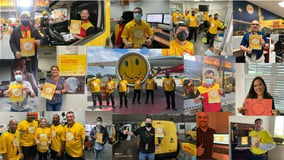 At DHL Express, No. 1 on the list, a listening tour and employee survey on the company’s DEIB efforts gathered 1,600 responses in more than 34 languages. Nearly all employees (94%) in an employee survey said they believe DHL promotes diversity and an inclusive environment.
At DHL Express, No. 1 on the list, a listening tour and employee survey on the company’s DEIB efforts gathered 1,600 responses in more than 34 languages. Nearly all employees (94%) in an employee survey said they believe DHL promotes diversity and an inclusive environment.
DHL also built a Sounding Board, a group of 20 employees to share their experiences and views, representing the different regions and backgrounds that comprise DHL’s global workforce.
For Accenture, No. 17 on the list, its We Take Action Against Racism Initiative had three steps: 1) new goals for increased ethnic and racial representation across its global workforce and managing directors, 2) new required training for employees to identify and speak up about racism, and 3) increased community investment to create economic inclusion.
One of the areas changed by the initiative is Accenture’s hiring process. The firm now actively practices “diverse slate hiring,” where every job search starts with an intentionally heterogenous candidate pool. Diverse slates try to include many cross-sections of groups to be inclusive: women, ethnic minorities, military vets, people with disabilities, and the LGBTQ+ community.
The bottom line
The World’s Best Workplaces offer a model for how companies can find success by helping their people succeed. A focus on wellbeing, flexibility, and equity can boost profits while also making the world a better place to work for everyone.
Discover which companies are the best of the best when it comes to employee experience...
